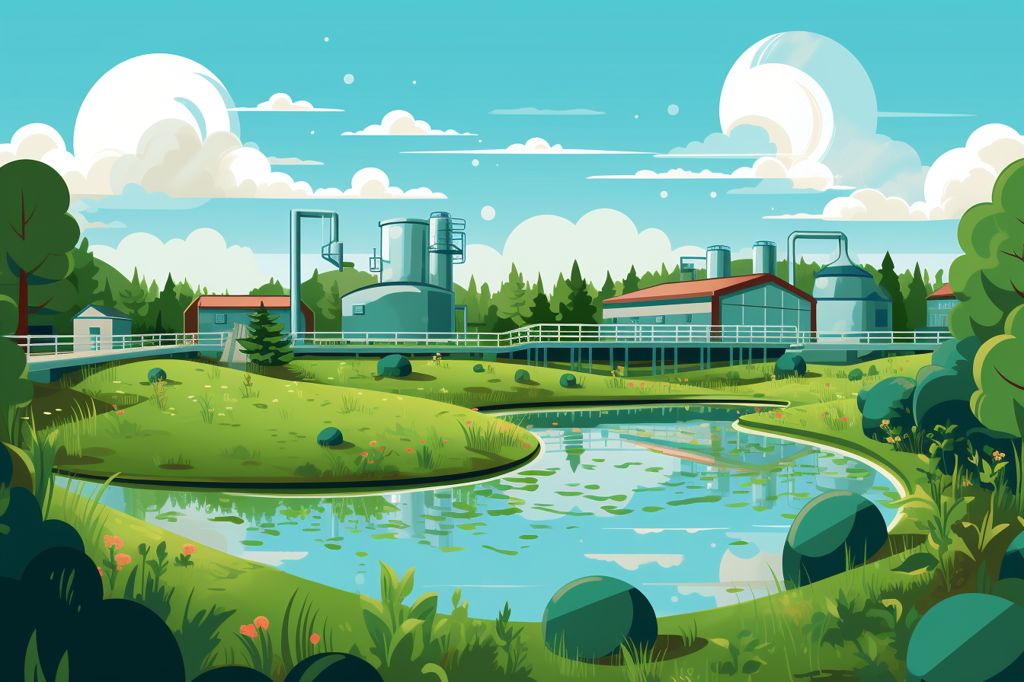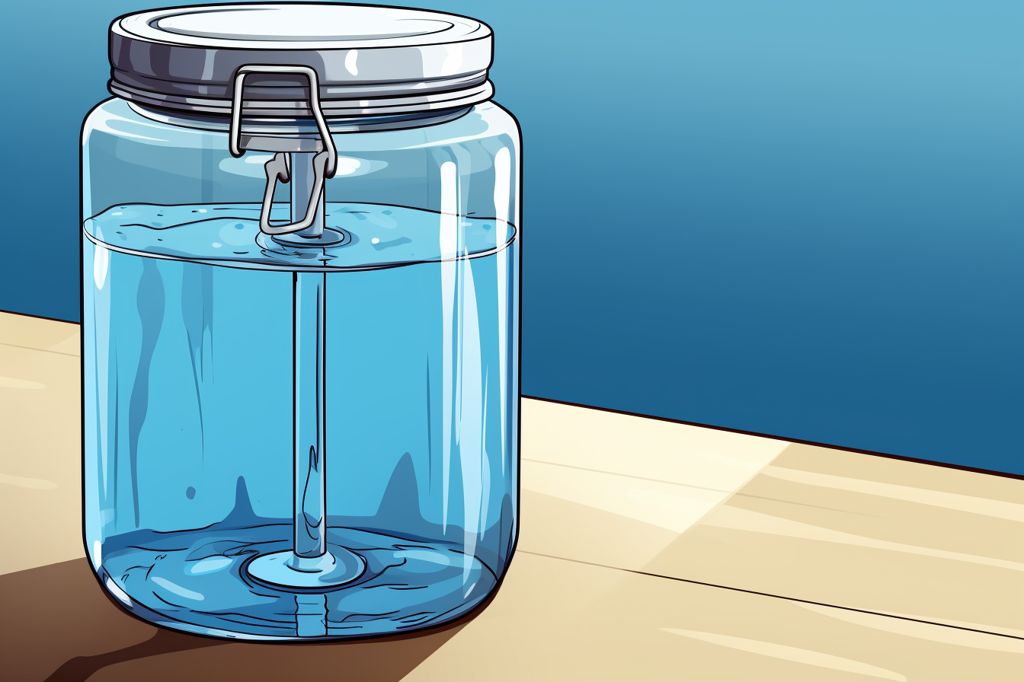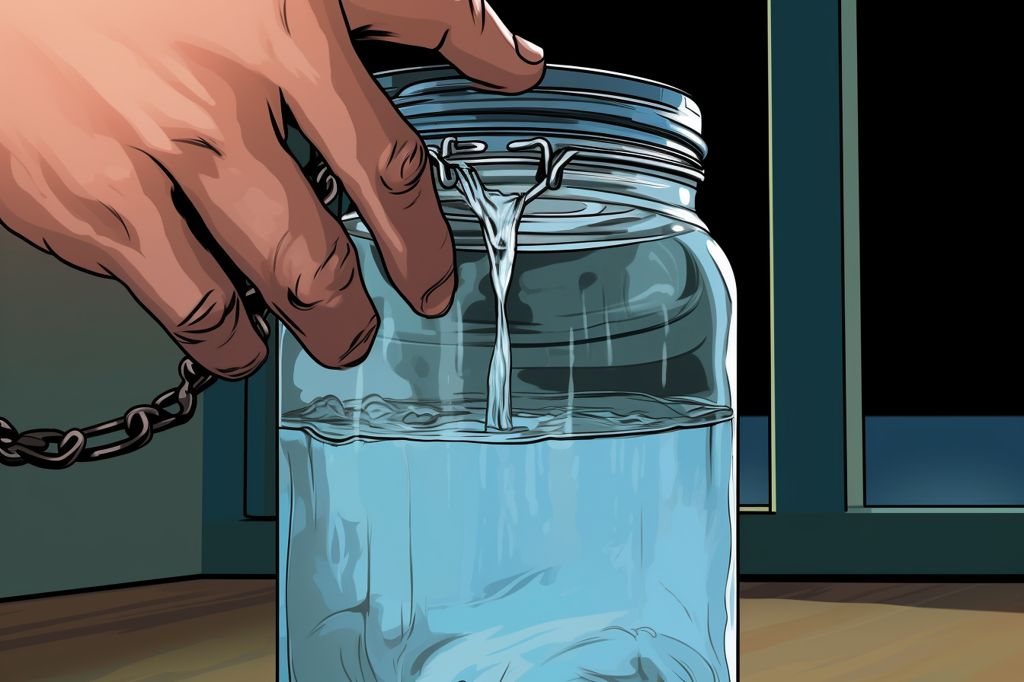The City’s Water and Sanitation Directorate is encouraging public involvement in discussions regarding marine outfall discharge permit applications and Wastewater Treatment Works (WWTW) permits. Residents and stakeholders can share their comments and suggestions on five WWTW facilities across 60 days through in-person and virtual meetings and alternative platforms. The City’s inclusive approach to policy development reinforces its dedication to transparency, inclusivity, and accountability, and promoting a culture of environmental stewardship. The public’s feedback will influence the future of wastewater management and ensure effective and sustainable policies are created.
Subtitle: City Encourages Residents and Stakeholders to Join Public Discussions on Wastewater Management
Engaging the Public in Wastewater Management Decisions
In a world focused on promoting sustainable growth, public involvement is crucial for shaping effective policies. Recognizing this, the City’s Water and Sanitation Directorate has initiated an extensive plan to promote public engagement regarding marine outfall discharge permit applications and Wastewater Treatment Works (WWTW) permits. These interactive sessions are scheduled for October and November 2023.
The public meetings will address five WWTW facilities in Mitchells Plain, Simon’s Town, Millers Point, Oudekraal, and Llandudno. Throughout the 60-day public participation window, residents and stakeholders have been granted ample opportunities to share their comments and suggestions on the permits and applications. This extended discussion period not only invites community input but also fosters a transparent environment for exchanging information.
To ensure widespread participation, the City’s Water and Sanitation Directorate has adopted a proactive and inclusive approach. By providing both in-person and virtual meeting options, they encourage a variety of perspectives to be shared. This effort aligns with democratic principles of public engagement and highlights the value of community input in decision-making processes.
Accessible Information and Alternative Platforms
For those unable to attend in-person sessions, the Directorate has made alternative platforms available to access information and submit feedback. Applications can be found on the City’s Have Your Say webpage, in libraries, sub-councils, and at marine outfall depots. This ease of access to information is crucial for fostering meaningful public involvement.
Councillor Zahid Badroodien, Mayoral Committee Member for Water and Sanitation, highlighted the importance of public involvement in this essential matter. He explained that the City will address the submitted comments and provide both the public’s feedback and the City’s responses to the National Department of Environment, Forestry, and Fisheries (DFFE) for its decision on the applications. This commitment to accepting public input demonstrates the value of public opinion in shaping wastewater management’s future.
The inclusive approach undertaken by the City’s Water and Sanitation Directorate is commendable. By engaging residents and stakeholders transparently, they ensure that all viewpoints are considered. This joint effort is leading the way toward efficient and sustainable wastewater treatment, a vital element of environmental preservation and protection.
The Power of Collective Action in Environmental Policy
It is essential to acknowledge the interconnectedness between society and its environment. Involving the public in environmental policy matters emphasizes the significance of collective action in preserving nature and its resources. The City’s initiative to include stakeholders in discussions about marine outfalls and wastewater treatment works exemplifies the impact of collaborative decision-making.
These public meetings on marine outfall discharge permits and WWTW permits offer an outstanding example of integrating public engagement into policy development processes. By inviting residents and interested stakeholders to participate in these vital discussions, the City’s Water and Sanitation Directorate reinforces its dedication to upholding democratic principles of transparency, inclusivity, and accountability.
Seizing the Opportunity for Collaboration and Environmental Stewardship
As the public participation period approaches, residents and stakeholders should take advantage of this chance to share their thoughts and opinions on the permits and applications. Their collective insights can influence the future of wastewater management and ensure the City’s environmental protection efforts are both effective and sustainable. This cooperative approach to policy development has immense potential for driving positive change and promoting a culture of environmental stewardship.
In summary, the public meetings on marine outfalls and wastewater treatment works offer an opportunity for community members to actively influence their environment’s future. By participating in these discussions and providing feedback, residents and stakeholders can contribute to the creation of sustainable wastewater management policies that will safeguard the environment and improve everyone’s quality of life.
1. What is the City’s Water and Sanitation Directorate encouraging?
The City’s Water and Sanitation Directorate is encouraging public involvement in discussions regarding marine outfall discharge permit applications and Wastewater Treatment Works (WWTW) permits.
2. What are the public meetings addressing?
The public meetings will address five WWTW facilities in Mitchells Plain, Simon’s Town, Millers Point, Oudekraal, and Llandudno.
3. How long is the public participation window?
The public participation window is 60 days.
4. What platforms are available for accessing information and submitting feedback?
Alternative platforms are available to access information and submit feedback, including the City’s Have Your Say webpage, libraries, sub-councils, and marine outfall depots.
5. What happens to the submitted comments?
The City will address the submitted comments and provide both the public’s feedback and the City’s responses to the National Department of Environment, Forestry, and Fisheries (DFFE) for its decision on the applications.
6. Why is public involvement important in environmental policy matters?
Involving the public in environmental policy matters emphasizes the significance of collective action in preserving nature and its resources.
7. What is the potential for positive change through this cooperative approach to policy development?
This cooperative approach to policy development has immense potential for driving positive change and promoting a culture of environmental stewardship.
8. How can residents and stakeholders contribute to the creation of sustainable wastewater management policies?
By participating in the discussions and providing feedback, residents and stakeholders can contribute to the creation of sustainable wastewater management policies that will safeguard the environment and improve everyone’s quality of life.








